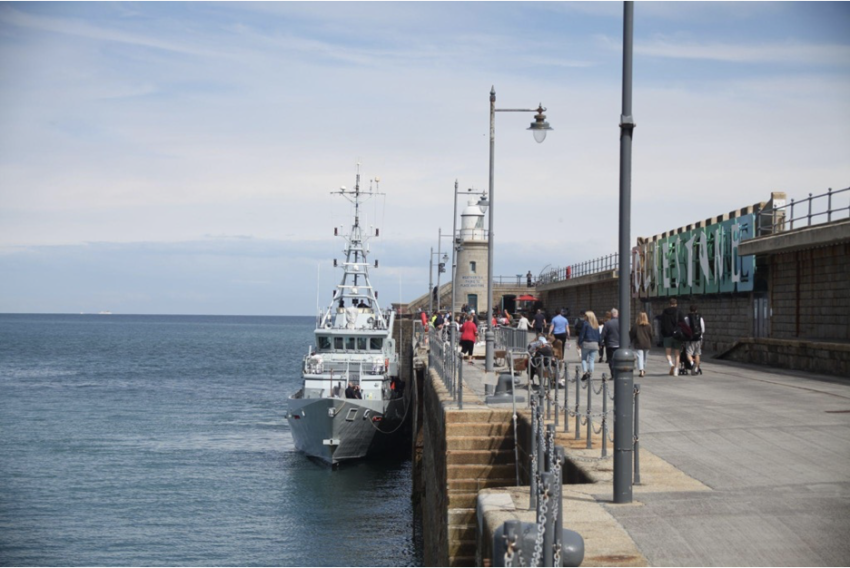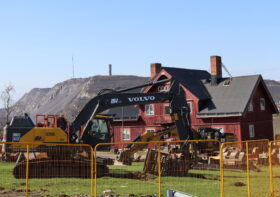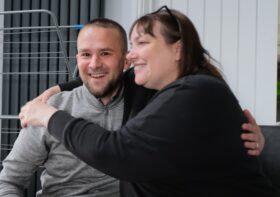UK Government Plan to Send Refugees to Rwanda Going Ahead After Failed Legal Challenge by Charities

By Greg Kennedy on Sunday the 12th of June
The British government has decided to send refugees who cross the English Channel in hope of Asylum in the UK to Rwanda.
Despite a last minute legal challenge from a group of NGOs and charities the plan is still in full motion. However, campaigners have confirmed that they will take the case to the Court of Appeal on Monday.
The first group of refugees to be housed in Rwanda have already been given notice. It’s said that up to 31 of them are due to be flown out next Tuesday after a government announcement two weeks ago. The original flight has been delayed after growing pressure from charities, lawyers and the public.
This decision, which was announced in April by the Home Secretary Priti Patel, has been met with a furious response from UK Charities who aid Asylum seekers in the UK. Their responses have often labelled this move as cruel and inhumane.
The Kent Refugee Action Network are one of those charities. “We think that ultimately it will almost certainly be found to break international law but, while that is tested, it will waste large sums of public money and further traumatize vulnerable people seeking sanctuary on our shores. In short it is both immoral and unworkable.”
While the government and home office are united in their view that this move is going to be a big step in solving the UK’s migration worries.
“Our new, world-leading Migration Partnership with Rwanda will see those who make dangerous, illegal or unnecessary journeys to the UK relocated to Rwanda and, if recognized as refugees, they will be supported to build a new life there,” a home office spokesperson told me. Suggesting that the refugees don’t have an option to come back to the UK and will have the opportunity for employment in Rwanda.
Priti Patel, home secretary of the United Kingdom, is credited as the organizer of the partnership with Rwanda. She said, “Border control is fundamental to national sovereignty. Uncontrolled immigration reduces our capability and capacity to help those who most need our support. It puts intolerable pressure on public services and local communities. The capacity of the asylum system is not unlimited, the presence of economic migrants inhibits our ability to support others in genuine need of protection,” In her speech on April the 14th.
Patel also announced that her “world-first” agreement will deter the business of people-smugglers who send migrants across the British channel – which is a perilous voyage. Patel will now hope that the UK can control who gets asylum first by who most needs it over who can afford to pay for the journey across.
The UN Committee for Refugees has been frequently critical since the British government released their decision on illegal migrant crossings. Catherine Stubberfield, spokesperson for UNHCR United Kingdom, says that this move from the Home Office “fails to comply with international law.” She also points to a failed deal that previously happened between Israel and Rwanda. “Past experience has also shown that those sent to Rwanda involuntarily will likely seek to depart again as quickly as possible, often facing serious threats to their safety and wellbeing through irregular channels. Of some 4000 refugees and asylum-seekers transferred by Israel to Rwanda between 2014 and 2018, only nine were estimated to remain in the country at the end of that period.”

(Katie Sweetingham of Care4Calais outside Dover Marina, where Migrants are first received in the United Kingdom)
Katie Sweetingham, who works in the Dover branch of Care4Calais, thinks that the Government’s goal of deterring migrant crossings through the threat of Rwanda is not going to work. “You have to think about what they’ve been through already. It has to be worse than that. They’ve been through all these horrific, awful things. If you look at the numbers, since the announcement, the crossings have still been high. So it doesn’t appear to be stopping anyone, it just seems to be something else to traumatize people. Allowing them to work would be a sensible solution, because then they’d be contributing to society paying taxes and national insurance.”
Recent figures from the government demonstrate refugee crossings. These statistics show the increase in illegal boat crossings over the past 4 years.

Most of the boats arrive along the Kent coast and the majority of refugees are detained and processed in the UK.
There was one recorded drowning death in 2018, by 2021 that has risen to a total of 52 recorded deaths whilst crossing the channel, with the biggest death toll of 37 in 2021.
A dramatic increase in asylum seekers has also resulted in increased illegal sea crossings across the rest of Europe. The European commission reported that in the EU there were 112,600 illegal sea crossings with 3,157 deaths in 2021. An increase of 30%.
The channel rescue observers are a group of locals who watch these boats cross the English Channel through powerful telescopes atop of the cliffs off of the Kent coast. They describe their role as ‘human rights observers’ – watching that the French and British coast patrol are making sure those who attempt the crossing are safe and granted asylum. Steven Martin, of the channel observers, tells me that, “at the moment, we don’t think there has been any significant deterrent effect since the

(Channel Rescue observers in action near Folkestone, Kent. Picture from Channel Rescue.)
Rwanda policy was put into place and the evidence that has been reported from our watches suggests most people are not deterred by the policy.”
Charities and other organizations have suggested that Rwanda is not the best place to be sent to and that it’s against human rights laws to send migrants there, as the UNHCR suggests here.
Rwanda is a small country in Africa with a poor population compared to the countries of Europe. A devastating genocide in 1994 left the country in a terrible place, however, the nation is known in Africa for pulling itself from the ashes to become one of the most developed and cleanest countries on the continent. The president is Paul Kagame who has served in his position since 2000.
Marie Louise Uwizeyimana, is an investigative journalist from Rwanda at Intego newspaper. According to her, Rwanda is a safe place to go for refugees, although it’s not without its problems.
“The country is very well organized and strict which in turn makes it safe for all visits and locals be it moving at night or at any time. One thing is the migrants will be assured of their security and that of their properties,” says Uwizeyimana.
Yet, the current state of the country suggests that it will be hard for those arriving from the UK to find work according to Uwizeyimana, “Currently high levels of the youth aren’t employed – though official government statistics show that they are. The country is struggling with malnutrition with stunted growth among children standing close to 40%. It seems like there is no way the government will be able to find jobs for these people when even the citizens have failed to get them.”
Recent comments from Priti Patel indicate that the Government has trust in Rwanda to house the refugees. “Rwanda has one of the strongest records of refugee resettlement and in recent years Rwanda has resettled over 100,000 refugees. It has an established record of welcoming and integrating people.”
The migrants will be put into hotels by the Rwandan government and are provided opportunities to find work and start a life in the country. “The UK is making a substantial investment in the economic development of Rwanda. This will support programs to improve the lives of the people in Rwanda and develop the country, economy, job prospects, and opportunities,” said Patel.
With the first flights to Rwanda being imminent, asylum seekers who have made the treacherous journey across the English channel, such as this group of 80 who arrived in Dover this morning at the time of my writing, await to hear if their time in the UK is up.
Statistics are correct at time of writing



Leave a Reply